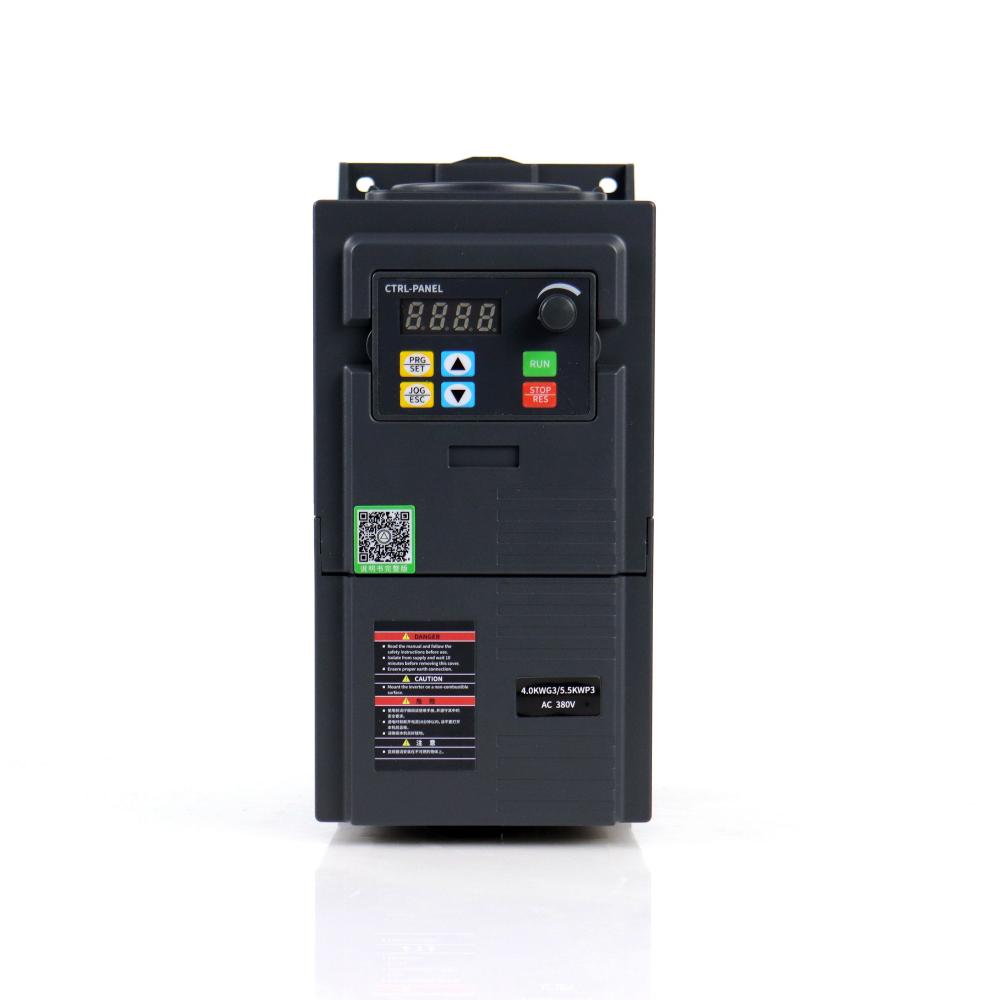A vector inverter, also known as a variable frequency drive (VFD) or adjustable speed drive (ASD), is an advanced power electronic device used to convert direct current (DC) power into alternating current (AC) power. It operates by employing complex control algorithms and sophisticated power electronics to regulate the frequency, voltage, and phase of the AC output waveform.
Vector inverters are widely used in various industries and applications due to their ability to provide precise control over the speed and torque of AC motors. By adjusting the frequency and voltage of the AC output, vector inverters can effectively regulate the motor's rotational speed, enabling smooth acceleration, deceleration, and precise positioning. This makes them essential in applications where precise control over motor speed and torque is required, such as industrial machinery, robotics, HVAC systems, and electric vehicles.
One of the key features of vector inverters is their ability to provide vector control, also known as field-oriented control (FOC). Vector control allows for independent control of the motor's magnetizing flux and torque, resulting in improved motor performance and efficiency. By accurately adjusting the motor's magnetic field and torque components, vector inverters can minimize energy losses, reduce motor heating, and enhance overall system efficiency.
In addition to motor control, vector inverters offer a range of advanced features and protection mechanisms. They typically include built-in functions for fault detection, overcurrent protection, overvoltage protection, and thermal protection, ensuring safe and reliable operation of the system. Furthermore, many vector inverters support communication protocols such as Modbus, Ethernet, and Profibus, facilitating integration with supervisory control systems and enabling remote monitoring and control.
Vector inverters are also extensively used in renewable energy systems, such as wind turbines and solar photovoltaic (PV) systems. They play a crucial role in converting the variable DC power generated by renewable sources into stable and grid-compatible AC power. By efficiently tracking and regulating the power output, vector inverters enable optimal power harvesting from renewable sources while ensuring grid stability and compliance with grid codes.
Overall, vector inverters are versatile devices that provide precise and efficient control over AC motors, making them indispensable in a wide range of industrial, commercial, and residential applications. With their advanced features, protective mechanisms, and compatibility with renewable energy systems, vector inverters contribute to enhanced energy efficiency, improved system performance, and sustainable energy utilization.

Power electronics, DC to AC conversion, Frequency control, Voltage regulation, Phase synchronization
WuXi Spread Electrical Co.,LTD , https://www.vfdspread.com